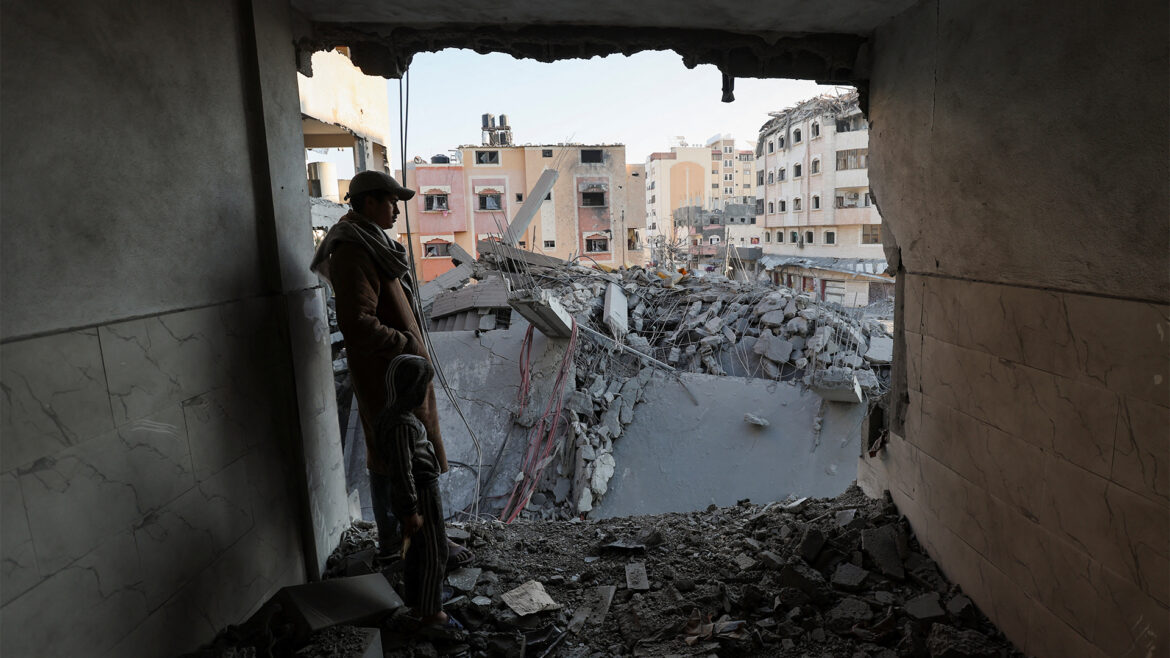International newspapers focused their attention on the future of the war launched by Israel on the Gaza Strip after the ceasefire agreement in Lebanon, in addition to the successive field developments in the Syrian scene and the progress of the opposition forces.
The British newspaper The Guardian stated in its editorial that Israeli Prime Minister Benjamin Netanyahu has no desire for a ceasefire in Gaza.
The newspaper added, “Netanyahu, who is fleeing war crimes charges, does not pay any attention to the values of morality and humanity, and he and his supporters do not care about the values of morality and humanity,” noting that the harsh suffering of Gaza residents and Israeli prisoners will continue.
The American website The Hill quoted former Israeli diplomat Alon Pinkas as saying that a ceasefire agreement between Israel and the Islamic Resistance Movement (Hamas) in Gaza is unlikely before US President Joe Biden leaves the White House on January 20.
Pinkas believes – according to the site – that Netanyahu has an interest in delaying the ceasefire agreement in Gaza until President-elect Donald Trump takes office.
The Israeli newspaper Haaretz said, in its analysis, that the ceasefire in Lebanon will not end the war in Gaza, because ending the war in the coastal strip and withdrawing Israeli forces from it “may lead to the collapse of Netanyahu’s government.”
The newspaper adds that what applies to Lebanon does not apply to Gaza, according to the ideological vision of the Netanyahu government, which seeks a continuous military presence in the Strip.
In turn, the British newspaper The Times published an article written by veteran American diplomat Dennis Ross, in which he said that Trump was a major factor in pushing Netanyahu towards a ceasefire in Lebanon, “because rejecting Trump’s desire will entail a heavy cost.”
According to the newspaper, Netanyahu refrained from announcing the annexation of lands in the West Bank during Trump’s first term, because expanding the Abraham Accords for normalization between Israel and the Arab countries represented a priority for Trump.
The Syrian file
On the Syrian front, the American newspaper The Washington Post said that the attack launched by the Syrian opposition forces, which caused shock due to its speed, “posed the most serious challenge to President Bashar al-Assad’s regime in years.”
She added that the rapid advance of the opposition from its stronghold in Idlib is “also a challenge to Assad’s allies, especially Russia and Iran, which are preoccupied with conflicts in Ukraine and Lebanon.”
For its part, an article in the British Financial Times opined that the advance of the Syrian opposition forces “breaks the fragile stalemate of the situation in the country, and clearly reveals the fragility of the Assad regime, the weakness of the Syrian army, and its dependence on the support of foreign forces.”
Source : American press + Israeli press + British press



